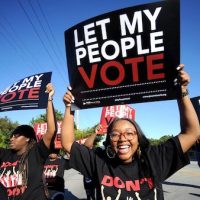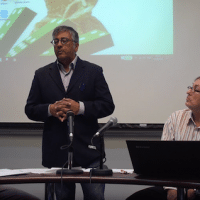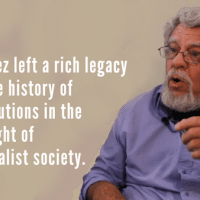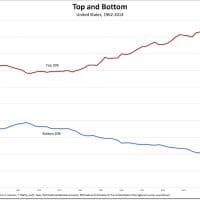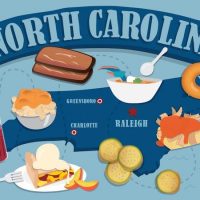-
Politics in America
U.S. elected leaders, and those that work for them, think their constituents are far more conservative than they are. The good news is that this means there is far more support for a progressive political agenda than one might think.
-
This radical plan to fund the ‘Green New Deal’ just might work
With what author and activist Naomi Klein calls “galloping momentum,” the “Green New Deal” promoted by Rep.-elect Alexandria Ocasio-Cortez, D-N.Y., appears to be forging a political pathway for solving all of the ills of society and the planet in one fell swoop.
-
Bigoted paternalism behind “Russians targeted African-Americans” NY Times article
The outlandish “Russian interference” narrative just took a turn from the banal to blatantly disrespectful. For the past two years, the punditry on the supposed left have been peddling the lie that the thousands of dollars spent on Facebook and Google ads—purportedly at the behest of Putin—had more impact on the outcome of the 2016 elections than the billions of dollars that were unleashed by corporations, lobbyists and the dark moneyed oligarchs.
-
International Institutional Monopoly Capitalism and Its Manifestations
Monopoly capitalism emerged from “laissez-faire” capitalism in the late nineteenth and early twentieth centuries, allowing giant corporations to dominate the accumulation process.
-
Dossier 11: The homemade politics of Abahlali BaseMjondolo, South Africa’s shack dweller movement
The shack-dwellers’ movement– Abahlali baseMjondolo, or AbM— is among the organizations of the world’s poor and dispossessed fighting for land reform and dignity. Despite waves of repression by the state, AbM membership now numbers over 50,000 in settlements across the country since their founding in 2006. In an interview with Tricontinental Institute, Zikode talks about the essence of AbM—what they are fighting for, who they are, what they have achieved, and what we can learn from them.
-
“A free Palestine from the river to the sea”
It is not uncommon for a mainstream media commentator to be fired for a bigoted or violent comment on air-or off air. As far as I know, there was never a person specifically fired for advocating non-violence and the equal treatment of a group of people.
-
Plan Oder Markt: the battle of ideas between Austro-Marxism and neoliberalism in Vienna
Co-sponsored by SFU’s Institute for the Humanities, School for International Studies, Department of History, & Department of Sociology and Anthropology.
-
Starting again from Marx
Let us start again from Marx.(1) Why? Is it because we are communists? No, this answer is not convincing. We could start again from somewhere else, from Lenin, or Mao; or, we could believe that current feminist or anti-racist struggles have no need for Marx; we could even think that Marx’s Eurocentrism makes him an enemy.
-
Money & Power with Jamee Moudud
In this episode, we’re joined by Jamee Moudud, a professor of economics at Sarah Lawrence College, Jamee draws on the tradition of critical legal studies to extend the constitutional theory of money to new historical and international contexts.
-
Hungarians hit the street against ‘slave law’ that increases overtime
According to the new provision that was passed on Wednesday, employers can demand as much as 400 hours of overtime a year and can take three years to disburse the payments for the same.
-
Every single member of U.S. Congress approved crushing sanctions on Nicaragua
After defeating a violent U.S.-backed coup attempt, Nicaragua’s elected government faces the NICA Act. The bill aims to force the Sandinistas from power by ratcheting up economic despair.
-
The Yellow Vest movement strengthens in France
It is hard to count demonstrators spread out across thousands of mobilisations, but it seems that over half a million people were involved in “Act Four” of the Yellow Vest mobilisation in France on Saturday 8 December. In Bordeaux, a huge joint demonstration between university students and Yellow Vests chanted: “Students and Yellow Vests, same Macron, same struggle!”
-
The fragility of the Colombian peace accords and the reincorporation of ex-insurgents of the FARC-EP
In this article we discuss the (non-) implementation of the Colombian peace accords, based on a conference given by Victoria Sandino, a leading FARC figure. We also examine an initiative, Ecomun, to build peace through the construction of alternative economies in the Colombian countryside.
-
Chavez and the twilight of capitalism
A philosopher, fisherman and former member of the Situationist International reflects on the Bolivarian Revolution.
-
William Blum, U.S. Policy critic derided by NYT, dies at 85
You know you’ve lived well—well enough to rattle the establishment—when the New York Times smears you in the obituary it runs about you (FAIR.org, 6/20/13).
-
Yellow-vest protests in France-an extraordinary political school
Hello, Professor Drweski. My name is Maria Cernat. I am a feminist, an academic and a journalist writing for Baricada.org. I am a lecturer at the Communication Sciences and International Relations Department, Titu Maiorescu University. I was very curious, and I am sure our readers are too, about the situation in France. I have a few questions that I hope you could answer for our readers.
-
Legacies crucial for the commons
The 150th birth anniversary year of Mohandas Karamchand Gandhi and the 200th birth anniversary of Karl Marx went by this year. Such anniversaries can become occasions of tokenism—for instance, the Indian government has set up a committee with more than 100 members to coordinate celebrations of Gandhi’s anniversary, crammed with political bigwigs from various parties, a few academics and Gandhian workers.
-
We have no choice but to live like human beings
One in eight people across the world live in informal settlements. This, despite the “right to a standard of living adequate for the health and well-being of himself and of his family” as declared by the International Declaration of Human Rights. Reality, however, is very far from this.
-
Dollarization in the United States
The United States is increasingly becoming dollarized. That’s because, for decades now, those at the bottom have been left behind, forced to attempt to get by in ever more precarious conditions.
-
Why are people hungry in North Carolina?
Tina Tru explains the facts about hunger in North Carolina—and looks at the kinds of policies, both local and system-wide, that could make a difference.



